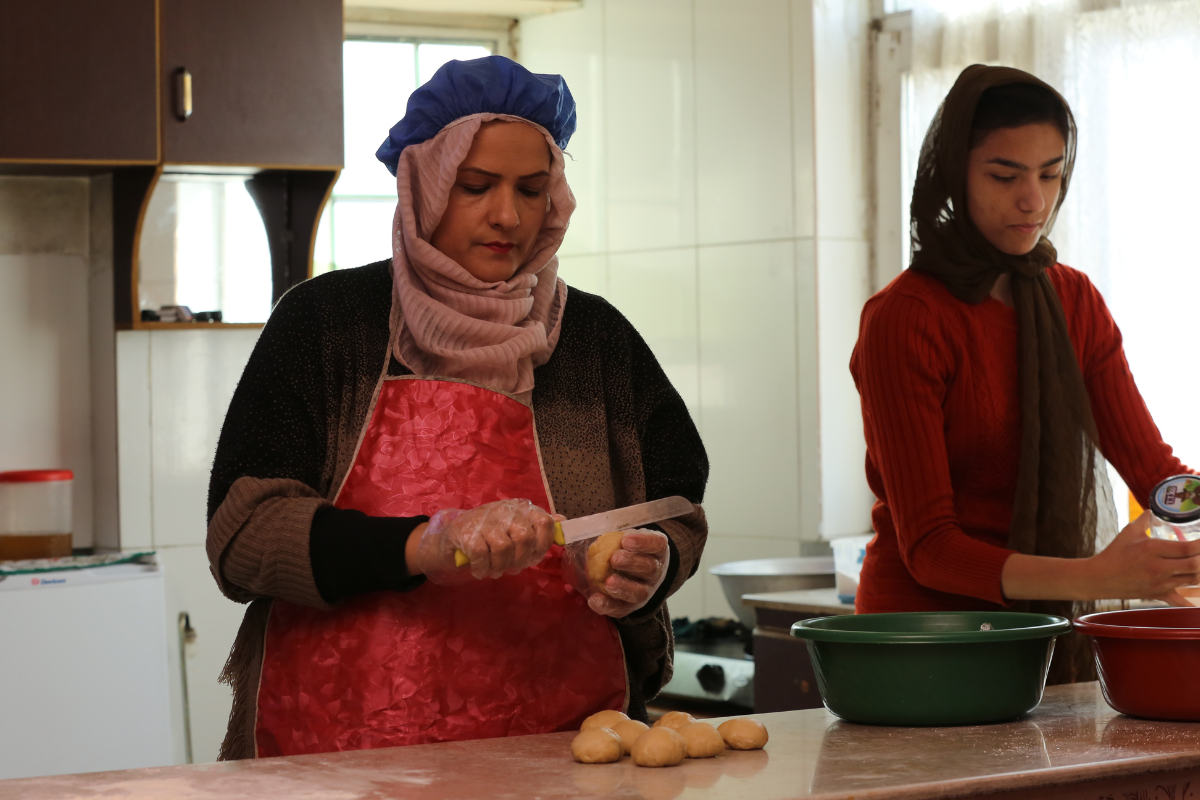
Meena started her business from scratch, with little to no equipment at her disposal. Yet, after a few months, it was already going so well that she managed to move the bakery to a rented space and help other women.
Due to the ban imposed by the Taliban, at the moment, many women at the head of the family cannot make a living and feed their children. Many of them are forced tobeg for money on the streets. Meena has given work to fifteen women, so far.
They didn’t only have money problems. The ban preventing women from studying and working had a very negative impact on a psychological level, some of them suffered from depression. Now they feel considerably better.
It was not in Meena's plans to make bread and pastries but this activity gave her a new hope. A reason to believe that one day she will see her dreams come true. First of all, that her daughter will smile again.